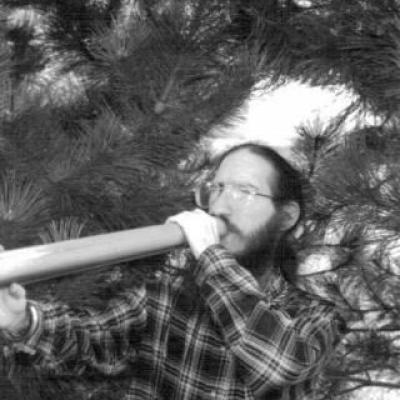


"We Are Children of the same Universe"
Since this is one of the defining statements of the Universal Life Church Monastery, it behooves us to consider the "Universe" from a theological viewpoint, in the context of our interfaith fellowship. This article is just a beginning, far from the end.
I do not know whether the original speaker actually intended a theological meaning, and I do not claim to represent the original intended meaning; I am instead considering a variety of other viewpoints that bear upon it in my carefully considered opinion. I believe this is important for ministers to do in light of the belief of some that ULCM is not a genuine religious body.
Every religion and spiritual system has its own theology, even if no one has reduced it to a creedal statement or text. A religious body that is defined as "interfaith" has a special difficulty, since it has no single theology in the usual sense, but many. As such there really can be no single theology for us as a whole, but we can identify that which we do share, and express our various theologies in light of that which connects. It is not unique to ULCM or other related groups. Some major ethnic religions in reality include a range of theologies and other philosophies, such as Hinduism, Shintoism, Hellenism or Druidism: each is bound by factors other than theology. Another type of example is the church that many of my relatives belong to: Unitarian-Universalism, which has some things in common with ULCM, while differing in some significant ways.
Regarding UUism, it began from the merger of two liberal Christian denominations: Unitarians, who believe that God is firmly one, opposing the Trinitarian theology; and Universalists, who believe in "universal salvation", that is, that God will not deny anyone salvation. After the merger, the newly-formed Unitarian Universalist Association resolved to do away with mandatory doctrine and creeds, choosing instead to unite on the basis of shared values and search for truth. As such people join from many backgrounds, without having to abandon their beliefs. The result is in some ways similar to ULCM, doubtless one reason I found it a good, familiar fit. One major difference is that to become a UU minister requires levels of formal education similar to most other churches.
Central to this discussion is what the Universe is. One way to define it is the sum total of all matter and energy. (While there are hypotheses of many universes, arguably the resulting multiverse would be the real, complete universe.)
For many religions, the Universe is defined as the creation of God; for them the matter is easy. The living things are parts of that single great Creation. For these systems, there is separation between Creator and Creation.
Others consider that God is the conscious mind of the Universe. This is sometimes called pan-psychism.
For atheists, there is no God nor Universal Mind. For them, life matters, mind matters, and we are connected through being conscious, intelligent living entities that are part of the Universe. We are Children of the Same Universe, even if in their view it isn't conscious, and has no mind.
Although doubtless many will disagree, I see pan-psychism as a possible reconciler between theistic and atheistic schools of thought. Some who study consciousness believe that it mechanistically results from self-referential feedback loops in the brain, owing in part to the complex structure of the brain, with simultaneous order and randomness. The Universe, as it happens, has similar characteristics, this being central to the field of Chaos Theory. And that in turn gives a possible physical explanation for pan-psychism: God or Universal Mind would be in effect an inherent part of reality.
The concept of the Absolute in various schools of thought is also a similar concept; we should be aware of the possibility of other similar concepts and terms in our searches and studies.
We have touched upon several quite different views of the Universe. In all cases, we are part of it, its "children". In this certainty we can unite as having heeded a call to minister to (serve) the children of the Universe, and the Universe itself, regardless of our various theological understandings of it.
"All beings...are a manifestation of the Universe's magnificence." - O-Sensei Morihei Ueshiba, Founder of Aikido (The Heart of Aikido, p. 46)
The speaker, David Chalmers, is a philosopher; there are many other videos of him speaking in other venues over the years as well.